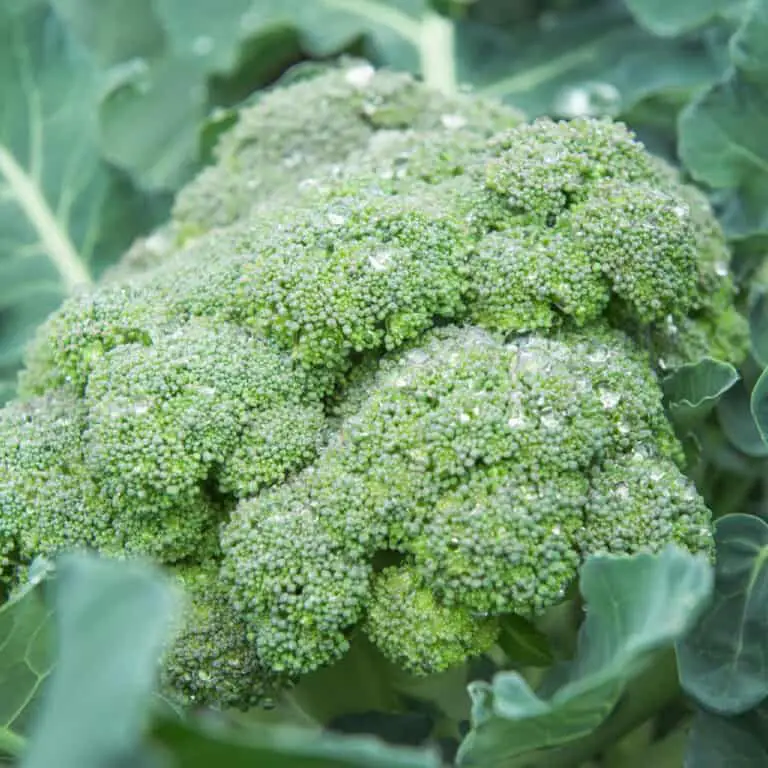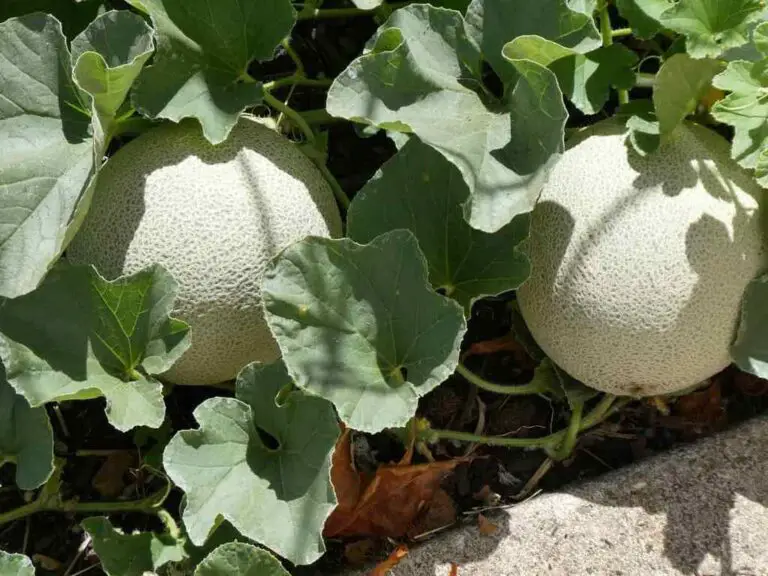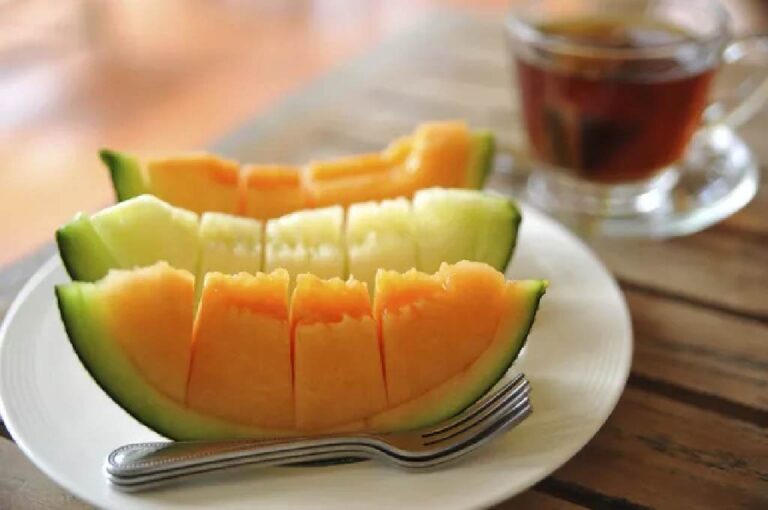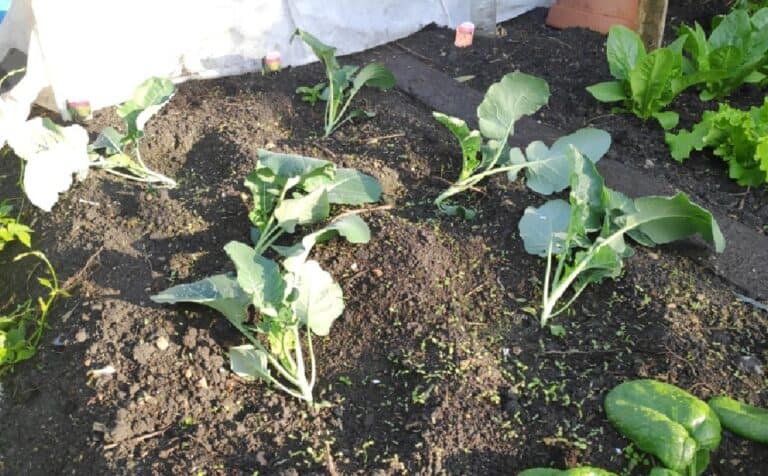Different Types and Varieties of Cantaloupes (With Names and Pictures)
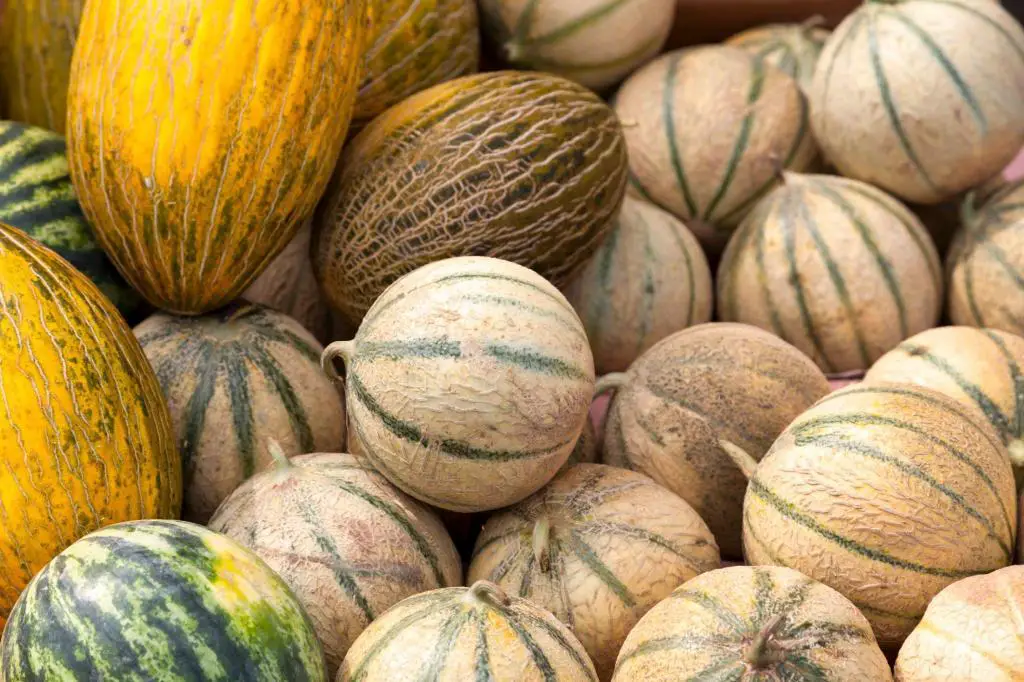
If you’re a fan of sweet, juicy fruit, then chances are you’ve tasted a cantaloupe or two in your lifetime. But did you know that there are many different types and varieties of cantaloupes out there, each with its own unique taste and characteristics?
From the sweet and fragrant Charentais to the juicy and delicious Honey Rock, cantaloupes are a versatile fruit that can be enjoyed in many different ways.
Whether you’re a home gardener looking to grow your own cantaloupes or just someone who loves to try new and exciting fruit varieties, there’s sure to be a cantaloupe out there that’s perfect for you.
In this article, we’ll explore some of the most popular cantaloupe varieties and discuss their unique characteristics, so you can decide which ones to try out for yourself.
So if you’re ready to learn more about the many different types of cantaloupes available, from the traditional to the exotic, keep reading and get ready to discover your new favorite fruit!
How Cantaloupes Became Popular in Different Parts of the World
Cantaloupes, also known as muskmelons, are a popular fruit that is enjoyed in many different parts of the world. But have you ever thought about how cantaloupes became so popular and how they are grown in so many places? Let’s explore the fascinating history and cultural significance of cantaloupes.
Cantaloupes were called “sharbat” in ancient Persia, where they are thought to have come from. From there, cantaloupes spread to different parts of the world, including China, India, and Europe.
In China, cantaloupes were known as “moli” and were highly valued for their medicinal properties. In India, cantaloupes were called “kharbuja” and were often used in traditional Ayurvedic medicine to treat a variety of ailments.
In Europe, cantaloupes became popular in the 16th century, where they were often grown in the gardens of royalty and aristocrats.
Cantaloupes also have cultural significance in different parts of the world. For example, in Japan, cantaloupes are seen as a luxury fruit and are often given as gifts to show appreciation or respect.
In the Middle East, cantaloupes are often eaten during Ramadan, a month of fasting and spiritual reflection. In the United States, cantaloupes are often associated with summer, and they are a staple at picnics, barbecues, and other outdoor events.
Characteristics of Cantaloupe Varieties
Cantaloupe is a versatile fruit that comes in different varieties, each with unique characteristics that make them stand out. One of the key distinguishing features of cantaloupe varieties is their size and shape.
Some varieties produce small, round fruits, while others produce larger, oblong-shaped fruits. The skin of cantaloupes can also be smooth, netted, or ribbed, depending on the type.
Cantaloupes can be very different, not only in size and shape but also in the color and texture of their flesh. While most cantaloupes have orange or yellow flesh, some varieties produce white or green-fleshed fruits. The flesh has different textures, too. Some types have firmer, crunchier flesh, while others have flesh that is softer and more juicy.
Another factor that distinguishes different cantaloupe varieties is their flavor profile. While all cantaloupes have a sweet, fruity taste, the intensity and depth of the flavor can vary between different varieties.
Some cantaloupe varieties have a very sweet, mild flavor, while others have a more complex flavor profile that may include hints of citrus or musk. The level of sweetness can also vary, with some varieties being sweeter than others. Understanding the different characteristics of cantaloupe varieties can help you choose the right one for your taste and growing conditions.
Popular Cantaloupe Varieties
There are many different varieties of cantaloupe, each with its own unique taste and characteristics. In this section, we’ll take a closer look at some of the most popular cantaloupe varieties.
Honey Rock Cantaloupe
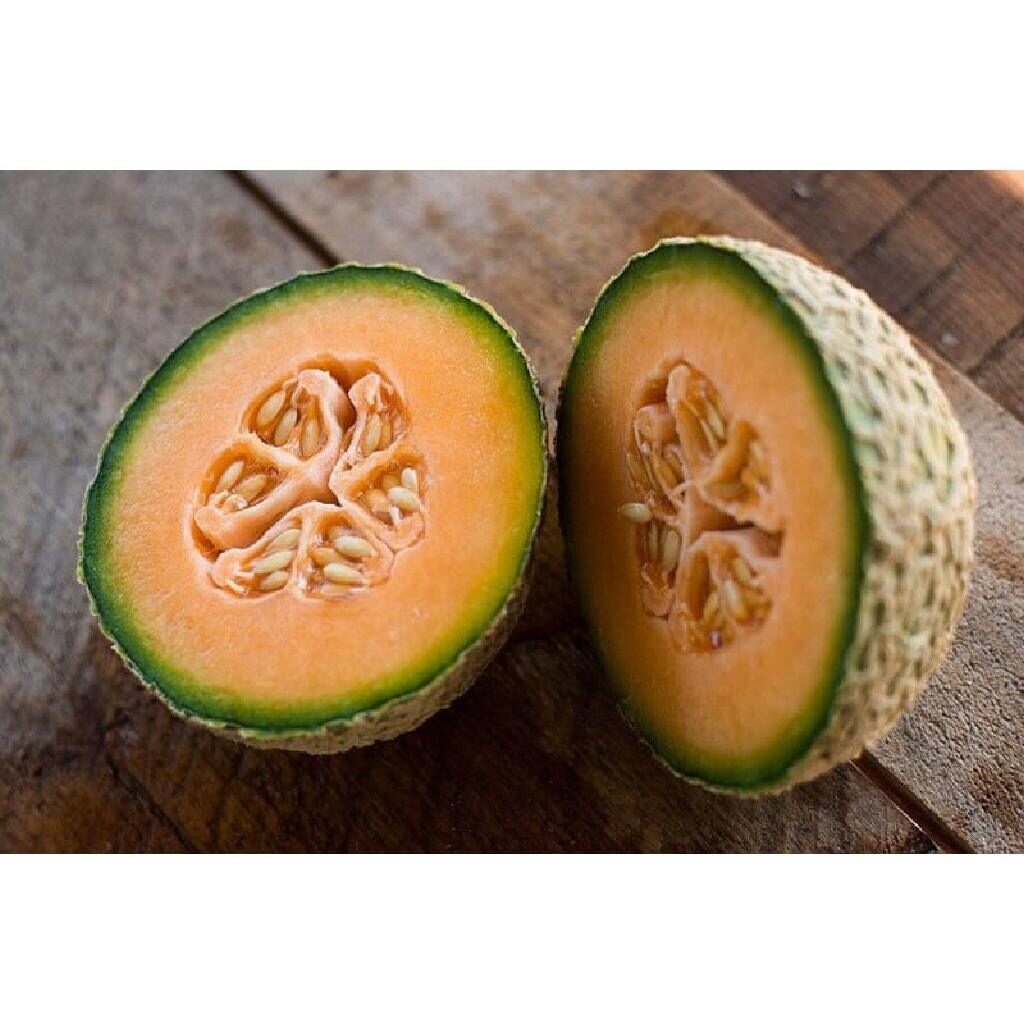
Honey Rock is a popular type of cantaloupe that is known for its sweet, juicy flesh and unique flavor. The fruit is oblong in shape with a thick, green skin and a bright orange interior. It is a popular choice for home gardeners and is often found at local farmers’ markets.
Hale’s Best Cantaloupe
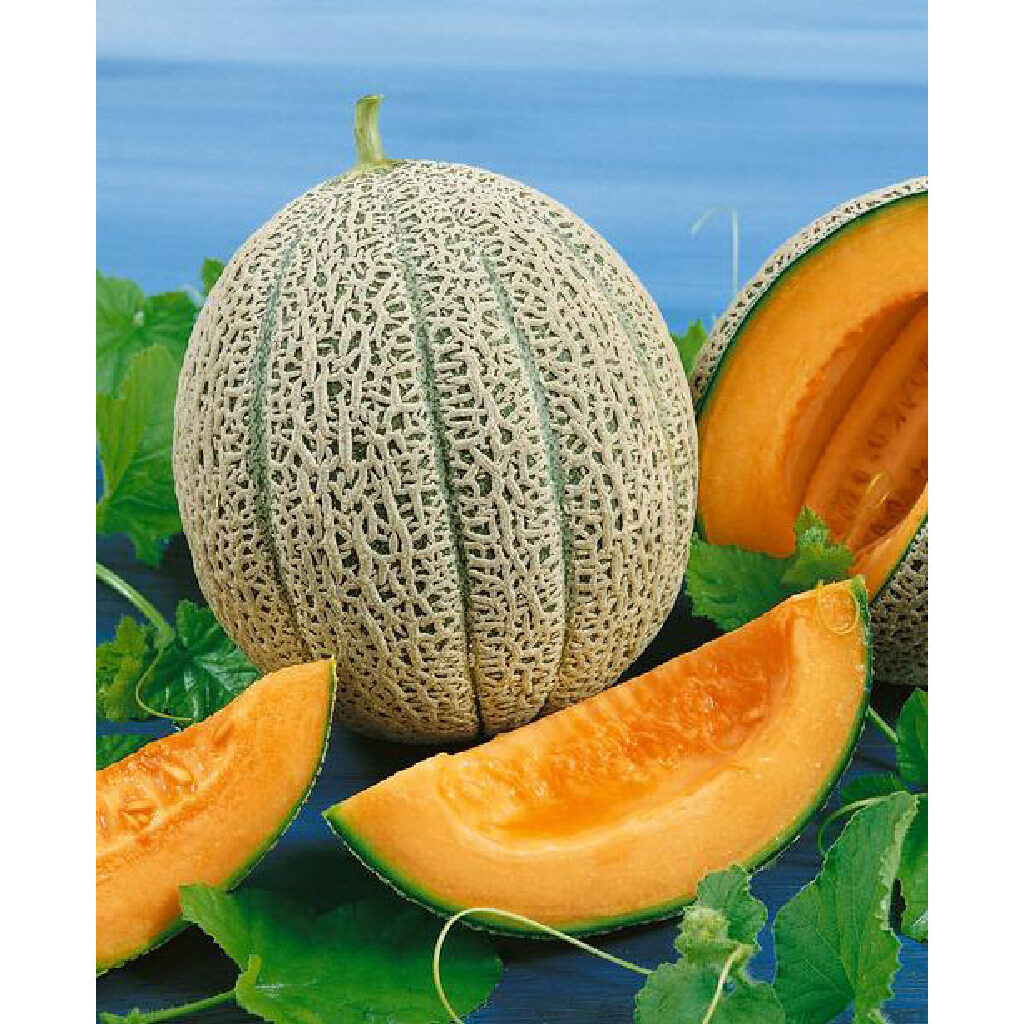
Another popular variety of cantaloupe is Hale’s Best, which is known for its sweet, fragrant flesh and smooth, netted skin. The fruit is round and medium-sized, making it a great choice for snacking or adding to fruit salads. Hale’s Best is a prolific producer and is often used by commercial growers.
Charentais Cantaloupe
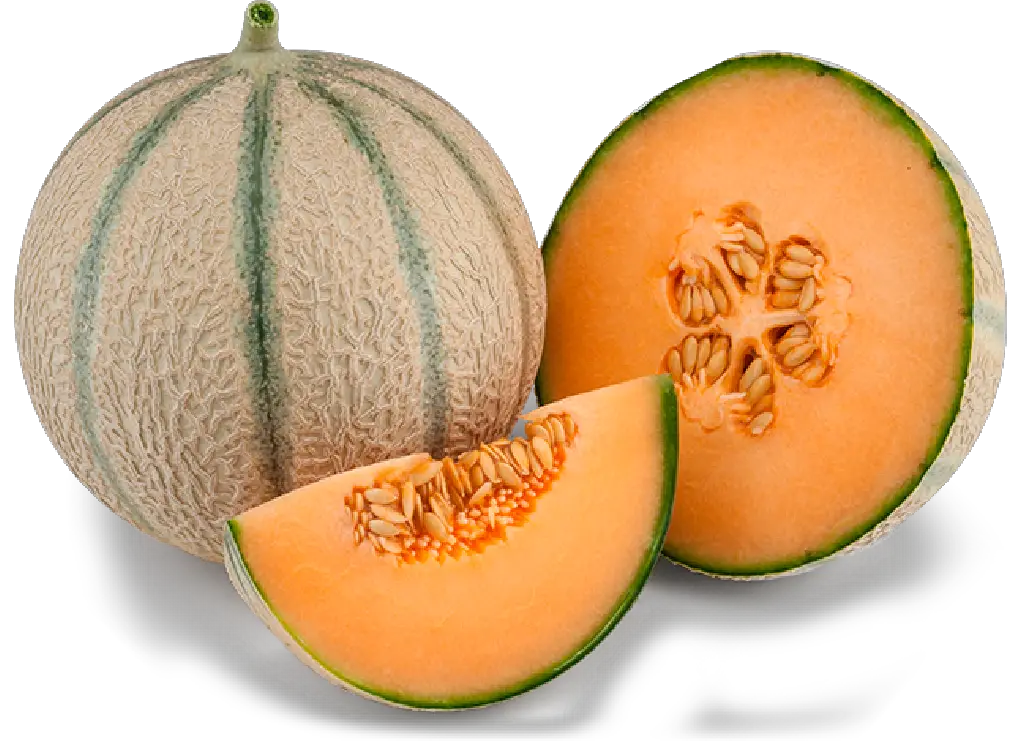
Charentais is a French variety of cantaloupe known for its fragrant, sweet flesh and small size. The fruit is round and has a distinct, ribbed skin with green stripes. Charentais is a delicate fruit that is highly prized by chefs and foodies alike.
Canary Cantaloupe
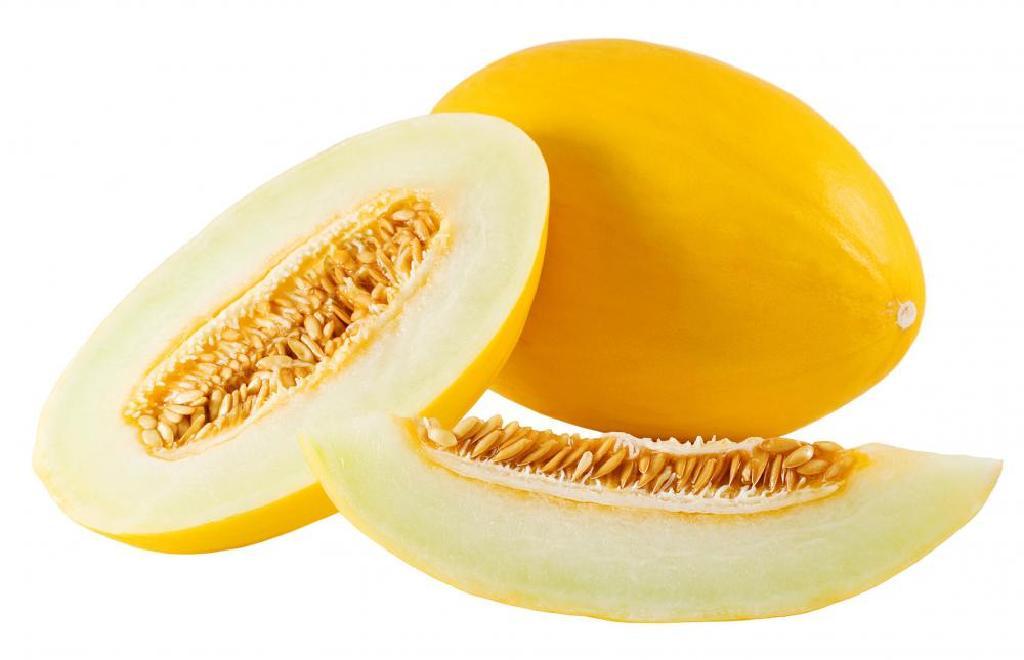
Canary is a unique variety of cantaloupe with bright yellow skin and pale green flesh. The fruit is oval-shaped and has a mild, sweet flavor that is similar to honeydew melon. It is a popular choice for salads and is often paired with other fruits.
Galia Cantaloupe
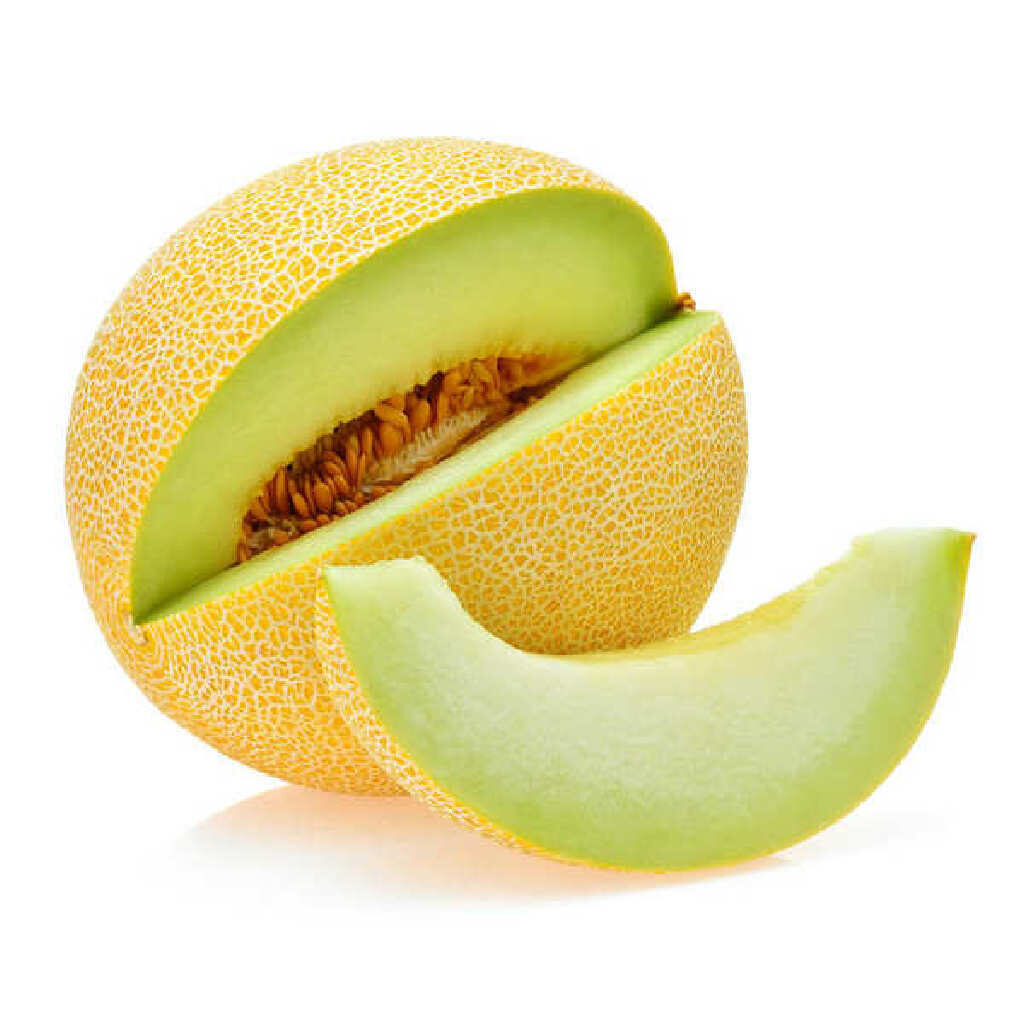
Galia is a type of cantaloupe that is a cross between a cantaloupe and a honeydew. It is sweet like a cantaloupe and juicy like a honeydew. The fruit is round and medium-sized, with a thin, netted skin and a bright green interior. Galia is a popular choice for snacking and is often found in grocery stores and farmers’ markets.
Hybrid and Heirloom Varieties of Cantaloupes
If you’re interested in growing your own cantaloupes, you may come across the terms “hybrid” and “heirloom” when choosing your seeds. Let’s take a closer look at what these terms mean and explore some popular hybrid and heirloom cantaloupe varieties.
Hybrid cantaloupes are the result of crossbreeding two different cantaloupe varieties. The goal is to create a new variety that combines the desirable traits of both parent plants. Hybrid cantaloupes are often bred so that they are less likely to get sick, grow bigger, and last longer. They can also have a more consistent flavor and texture.
Heirloom cantaloupes, on the other hand, are varieties that have been passed down through generations of gardeners and farmers. They are open-pollinated and not genetically modified. Heirloom cantaloupes are often prized for their unique flavors, colors, and textures.
Some popular hybrid cantaloupe varieties include Athena, Halona, and Super Star. The Athena is known for its sweet and juicy flesh, while the Halona is prized for its disease resistance and long shelf life. The Super Star is a high-yielding variety that produces large, sweet melons.
Heirloom cantaloupe varieties include Hale’s Best Jumbo, Jenny Lind, and Minnesota Midget. The Hale’s Best Jumbo is a popular heirloom variety that tastes sweet and juicy. The Jenny Lind, on the other hand, is a smaller melon that tastes rich and fragrant. The Minnesota Midget is a small, early-maturing variety that is perfect for container gardens.
There are some differences in growth and production between hybrid and heirloom cantaloupe varieties.
- Hybrid varieties are often more resistant to disease and pests, which can make them easier to grow.
- Hybrid varieties tend to have a longer shelf life and a more uniform appearance.
- Heirloom varieties, on the other hand, may be more susceptible to disease and pests.
- Heirloom varieties often have a richer flavor and more diverse appearance.
- Heirloom varieties can also be harder to find than hybrid varieties because there aren’t as many of them.
Overall, whether you choose a hybrid or heirloom cantaloupe variety, you’re sure to enjoy the unique and delicious flavor of this versatile fruit.
Organic Cantaloupe Varieties
If you’re a fan of organic produce and want to grow your own cantaloupes, there are plenty of options to choose from. Several seed companies offer organic cantaloupe varieties, each with their own unique characteristics.
- Burpee, for example, sells several kinds of organic cantaloupe, such as Ambrosia Hybrid, El Gordo Hybrid, Hearts of Gold, Sugar Cube Hybrid, Olympic Express Hybrid, Hales Best Jumbo, and Burpees Hybrid.
These varieties range from small, early-maturing types to large, late-maturing types with a long growing shelf life. Each variety has its own distinct flavor and texture, so it’s worth experimenting with different types to find your favorite.
- High Mowing Seeds also sells organic cantaloupes like the Divergent F1 Melon, PMR Delicious 51 Melon, Sivan F1 Melon, and True Love F1 Melon. These varieties are known for their disease resistance, uniform appearance, and sweet, juicy flesh.
- Other seed companies that offer organic cantaloupe seeds include Everwilde, Eden Brothers, and Johnny’s Seeds. These companies sell organic and heirloom melon seeds, including cantaloupe seeds, so you can find the best seeds for your needs and tastes.
TIPS ![]()
When growing organic cantaloupes, it’s important to follow organic growing practices to ensure the health and safety of your plants and the environment. This could mean using organic pesticides and fertilizers, rotating crops, and planting next to each other to keep pests away and help plants grow well.
Overall, with so many organic cantaloupe varieties to choose from, you’re sure to find a variety that fits your taste preferences and growing conditions.

